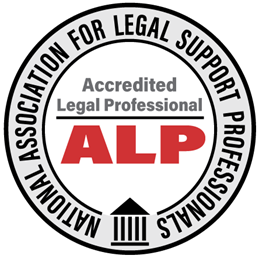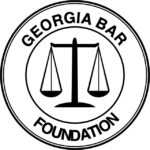Introduction to Legal Services
Introduction Course
We highly recommend a unique introduction course for the legal services pathway. Some states use a broad based overview of the law and public safety content area. Our pathway reflects the legal studies specific courses. While the course allows for “local flavor” (the instructor can focus somewhat on the pathways taught at the school), the courses are fairly similar in design and implementation. The LAPSEN Introduction to Legal Services (ILS) course cover most areas taught at the state level. We will use the ILS course outline to share resources for our introductions courses.
Below is our new suggested course and support material.
Instructional Plans & Resources
LAPSEN Unit Plans
LAPSEN has a complete course (120-150 hours) of ILS unit lesson plans available to all educators due to a generous grant from the Georgia Bar Foundation – Click Here to access these
Other Lesson Plan Sources
California Educators Together– The great state of California has an insane amount of resources and lessons. Be sure to search with different key words. You do have to have an account – but they give them to all teachers: Click Here
Texas CTE Lesson Plans – They have some materials for Law & Public Safety: this page was retired by TEA
Courts and Trials – Instructional support page from LAPSEN: Click Here
Industry Recognized Credentials (IRC) for this Pathway
These certifications satiate all Perkins legislative requirements for Industry Recognized Credentials. Order student certification tests – Click Here
 Accredited Legal Professional
Accredited Legal Professional
The legal services exam pathway provides students with the basic knowledge, skills, and experience to understand the legal system, the legal office and working in the legal field. The high school model can be implemented in 100-120 hours of class time. At the end of the course, students will be able to take the industry certification test. Students test in the third course of the pathway – Civil Law.
To learn more about course materials, student testing, and classroom implementation: Click Here
To review the course outline covered to prepare students for the ALP certification – Click Here
Learn more about this IRC – email holly@lapsen.org
MicroCredentials (MC) for this Course
All MicroCredentials are being developed and should be ready in soon.

Introduction to Legal Services (ILS) Course Standards
Click Here to open the ILS Curriculum Map.
Section 1: Legal Careers
Objective 1: Describe the various careers available in the legal field
Objective 2: Demonstrate job interview skills and interview preparation steps
Section 2: Legal Office Skills
Objective 1: Demonstrate basic legal research skills
Objective 2: Demonstrate basic legal office skills
Objective 3: Demonstrate professional collaboration and communication skills
Objective 4: Describe ethical issues that arise in a legal career and how to navigate those issues
Section 3: The US Court System
Objective 1: Differentiate federal courts vs state courts
Objective 2: Describe the role and jurisdiction of state courts
Objective 3: Describe the role and jurisdiction of federal courts
Section 4: Introduction to Constitutional Rights
Objective 1: Describe important constitutional rights that apply to legal cases
Objective 2: Explain how constitutional rights apply in a trial setting
Section 5: Introduction to Civil Law and Criminal Law
Objective 1: Describe common criminal offenses and how they are classified
Objective 2: Describe common civil causes of action and what is required to prove each
Objective 3: Differentiate civil law and criminal law
Section 6: Introduction to Pretrial
Objective 1: Explain the function of major hearings in the criminal pretrial process
Objective 2: List and describe common pretrial events in a civil case
Objective 3: Explain common pretrial motions
Section 7: Introduction to Trials and Juries
Objective 1: Explain the trial process
Objective 2: Explain the role and function of a jury
Objective 3: Identify and describe post-trial verdict options
Section 8: Mock Trials
Objective 1: Describe the mock trial process and legal documents contained in a mock trial case
Objective 2: Analyze case materials to determine what information is relevant to proving a case, including a differentiation of helpful and harmful information
Objective 3: Draft witness examination questions and answers using professional language and grammar
Objective 4: Demonstrate substantive trial skills in an organized and professional manner
Objective 5: Analyze and interpret legal documents and laws to develop legal arguments and conclusions
Objective 6: Convey relevant legal information in an organized and cohesive opening statement or closing argument
Objective 7: Present a well organized trial presentation that utilizes professional language and focuses on satisfying all applicable legal standards
Section 9: Introduction to Appeals
Objective 1: Describe the appeals process
Objective 2: Analyze and brief an appellate case
Objective 3: Identify the appropriate court to consider an appeal
The lesson plans for the legal services pathway were created, in part, from a generous grant from the
Georgia Bar Foundations’ IOLTA Grant.
